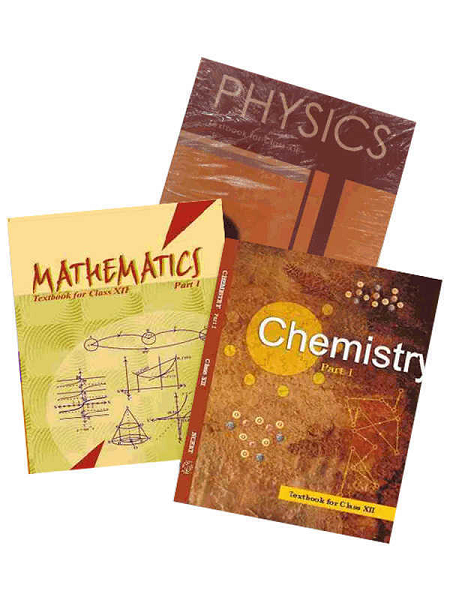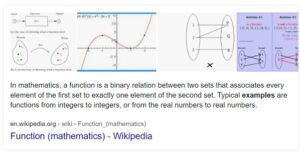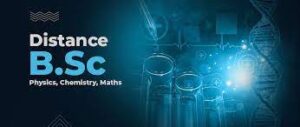A Bachelor of Science (B.Sc.) in Mathematics with a focus on PCM (Physics, Chemistry, Mathematics) typically refers to an undergraduate degree program that combines mathematics with courses in physics and chemistry. This program is designed to provide students with a strong foundation in these three disciplines and is often chosen by students who have a strong interest in the physical sciences and mathematics.
Here’s a breakdown of what you might expect in a B.Sc. Mathematics – PCM program:
- Mathematics: This forms the core of the program. You will study various branches of mathematics, including calculus, algebra, statistics, differential equations, linear algebra, and more. The mathematics component of the program is usually quite extensive and rigorous.
- Physics: You’ll take courses in physics that cover topics like mechanics, electromagnetism, thermodynamics, quantum mechanics, and more. These courses will give you a solid understanding of the fundamental principles of physics.
- Chemistry: The chemistry component typically includes courses in general chemistry, organic chemistry, inorganic chemistry, and analytical chemistry. These courses will help you understand the principles and concepts of chemistry.
- Elective Courses: Depending on the specific program and university, you may have the opportunity to choose elective courses in mathematics, physics, or chemistry that align with your interests and career goals.
- Laboratory Work: In addition to theoretical coursework, you will likely have laboratory sessions in physics and chemistry where you will perform experiments and gain hands-on experience.
- Mathematical Modeling: Some programs may include courses that focus on mathematical modeling, which involves using mathematical techniques to solve real-world problems in physics and chemistry.
Upon completing a B.Sc. in Mathematics – PCM, you’ll have a well-rounded education in mathematics, physics, and chemistry. This can open up various career opportunities in fields such as scientific research, data analysis, engineering, education, and more. Many graduates also go on to pursue advanced degrees in mathematics, physics, chemistry, or related fields to further specialize in their chosen area of interest.
Who is Required Bachelor of Science Mathematics- PCM (Physics, Chemistry, Mathematics)
- Students: Many students pursuing careers in fields like engineering, physical sciences, or mathematics may be required to complete a Bachelor of Science degree with a PCM focus as part of their educational background.
- Job Applicants: Some job positions in technical or scientific fields may require applicants to hold a Bachelor of Science degree with a specialization in PCM to qualify for the role.
- Researchers and Academics: Professionals working in research and academia, particularly in the fields of physics, chemistry, and mathematics, often have this degree as part of their qualifications.
- Educators: Teachers and professors who teach mathematics, physics, or chemistry at various levels of education may have this degree to demonstrate their expertise in these subjects.
When is Required Bachelor of Science Mathematics- PCM (Physics, Chemistry, Mathematics)
If you’re asking when someone might be required to have a Bachelor of Science degree with a specialization in Physics, Chemistry, and Mathematics (PCM), it can vary depending on their career goals and the specific job or educational requirements. People typically pursue this degree when they intend to work in fields that require a strong foundation in these subjects, such as engineering, scientific research, education, or related areas.
There is no specific “when” associated with obtaining this degree. Instead, individuals choose to pursue this degree as part of their educational and career paths based on their interests and goals. They typically enroll in undergraduate programs that offer this specialization, and the duration of the program depends on the specific university and country’s educational system.
If you have a more specific question or need information about a particular aspect of this degree program, please provide additional details so I can offer more precise information or guidance.
Where is Required Bachelor of Science Mathematics- PCM (Physics, Chemistry, Mathematics)

The availability of a Bachelor of Science degree program with a specialization in PCM (Physics, Chemistry, Mathematics) can vary depending on the university or educational institution and the country where you are looking for such a program. These programs are typically offered by universities and colleges that have strong science and mathematics departments. Here’s where you might find such programs:
- Universities and Colleges: Most universities and colleges around the world offer Bachelor of Science programs in mathematics with specializations that may include PCM. It’s common to find these programs in the science and mathematics departments.
- Online Universities: Some universities and institutions offer online programs in mathematics with various specializations, including PCM. These programs allow students to study remotely.
- Country-Specific Programs: The availability of such programs may vary by country. In some countries, certain universities may be well-known for their science and mathematics programs.
To find a specific Bachelor of Science Mathematics – PCM program, you should:
- Research universities and colleges in your preferred location.
- Visit their official websites and explore their undergraduate mathematics programs.
- Check the program details, curriculum, admission requirements, and any specific specializations.
- Contact the admissions or academic departments for more information if needed.
Remember that the availability of programs can change over time, so it’s important to verify the current offerings and requirements with the institutions you are interested in.
How is Required Bachelor of Science Mathematics- PCM (Physics, Chemistry, Mathematics)
If you’re asking about how a Bachelor of Science Mathematics program with a specialization in PCM (Physics, Chemistry, Mathematics) is structured or what it entails, I can provide a general overview:
- Core Mathematics Courses: These programs typically start with a strong foundation in mathematics, covering areas such as calculus, algebra, discrete mathematics, and statistics. These courses are usually a significant part of the curriculum.
- Physics Courses: You’ll take courses in physics, which may include mechanics, electromagnetism, thermodynamics, quantum mechanics, and other topics. These courses introduce you to the fundamental principles of physics.
- Chemistry Courses: The program will include chemistry courses in areas like general chemistry, organic chemistry, inorganic chemistry, and analytical chemistry. These courses give you a basic understanding of chemical principles.
- Elective Courses: Depending on the program and university, you may have the flexibility to choose elective courses in mathematics, physics, or chemistry that align with your interests or career goals.
- Laboratory Work: In addition to classroom instruction, you’ll typically have laboratory sessions in both physics and chemistry. These hands-on experiences allow you to apply what you’ve learned and develop practical skills.
- Mathematical Modeling: Some programs include courses in mathematical modeling, where you use mathematical techniques to solve real-world problems in physics and chemistry.
- Research and Projects: Some programs offer research opportunities or senior projects that allow you to delve deeper into a specific area of interest within PCM.
- Final Year or Capstone Project: Many programs require students to complete a final-year project or capstone project, which often involves original research or an in-depth study related to PCM.
The structure and specific courses within a Bachelor of Science Mathematics – PCM program may vary from one university to another, so it’s important to check the curriculum and program details of the specific institution you are interested in. Additionally, the duration of the program may typically span three to four years, depending on the country and university.
Case Study of Bachelor of Science Mathematics- PCM (Physics, Chemistry, Mathematics)
Name: Sarah Johnson
Background: Sarah is a high school graduate who has always been passionate about mathematics and the physical sciences. She excelled in her mathematics, physics, and chemistry courses during high school and decided to pursue a degree that allows her to combine her interests in these subjects.
Choice of Program: After researching various universities, Sarah decides to enroll in the B.Sc. Mathematics program with a PCM specialization at a well-known university.
Year 1: In her first year of the program, Sarah takes foundational mathematics courses, including calculus, linear algebra, and discrete mathematics. She also begins her physics and chemistry coursework with introductory courses in mechanics, electromagnetism, and general chemistry. She participates in laboratory sessions to gain hands-on experience in conducting experiments.
Year 2: During her second year, Sarah continues to deepen her knowledge in mathematics with courses in differential equations, abstract algebra, and statistics. In physics, she delves into topics like thermodynamics and optics, while in chemistry, she studies organic chemistry and analytical chemistry. She selects elective mathematics courses related to numerical methods and mathematical modeling.
Year 3: Sarah’s third year involves more advanced coursework. She explores quantum mechanics and relativity in physics, along with advanced topics in organic and inorganic chemistry. In mathematics, she takes courses in complex analysis and numerical analysis. She also joins a research group in the mathematics department and begins working on a research project related to mathematical modeling in physics.
Year 4: In her final year, Sarah completes her research project and presents her findings at a university symposium. She takes additional advanced mathematics courses, including partial differential equations, and a course on scientific computing. Her chemistry coursework includes advanced topics in physical chemistry. She also prepares for comprehensive exams in mathematics, physics, and chemistry as part of her degree requirements.
Post-Graduation: After successfully completing her B.Sc. in Mathematics – PCM, Sarah has several options. She can pursue a career in scientific research, work in a technical role in industries such as aerospace or pharmaceuticals, or continue her education by pursuing a master’s or Ph.D. in a specialized field of mathematics, physics, or chemistry.
This case study illustrates the academic journey of a student pursuing a B.Sc. in Mathematics with a PCM specialization. Keep in mind that the specific courses, research opportunities, and experiences can vary depending on the university and program. Sarah’s path is just one example of how such a program might unfold.
White paper on Bachelor of Science Mathematics- PCM (Physics, Chemistry, Mathematics)
However, if you’re looking for research papers or white papers related to the Bachelor of Science Mathematics – PCM (Physics, Chemistry, Mathematics) program, you can try the following steps:
- University Websites: Visit the websites of universities and colleges that offer this program. They often provide access to research papers, publications, and white papers related to their academic programs.
- Academic Databases: Utilize academic databases like JSTOR, Google Scholar, or your university’s library resources to search for research papers and publications related to this field.
- Professional Organizations: Check if there are professional organizations related to mathematics, physics, chemistry, or STEM education that publish white papers or research studies in this area.
- Government Agencies: Some government agencies or departments of education may publish reports and studies related to STEM education and curriculum development.
- Online Academic Journals: Many academic journals publish research articles and white papers on topics related to STEM education and curriculum development.





